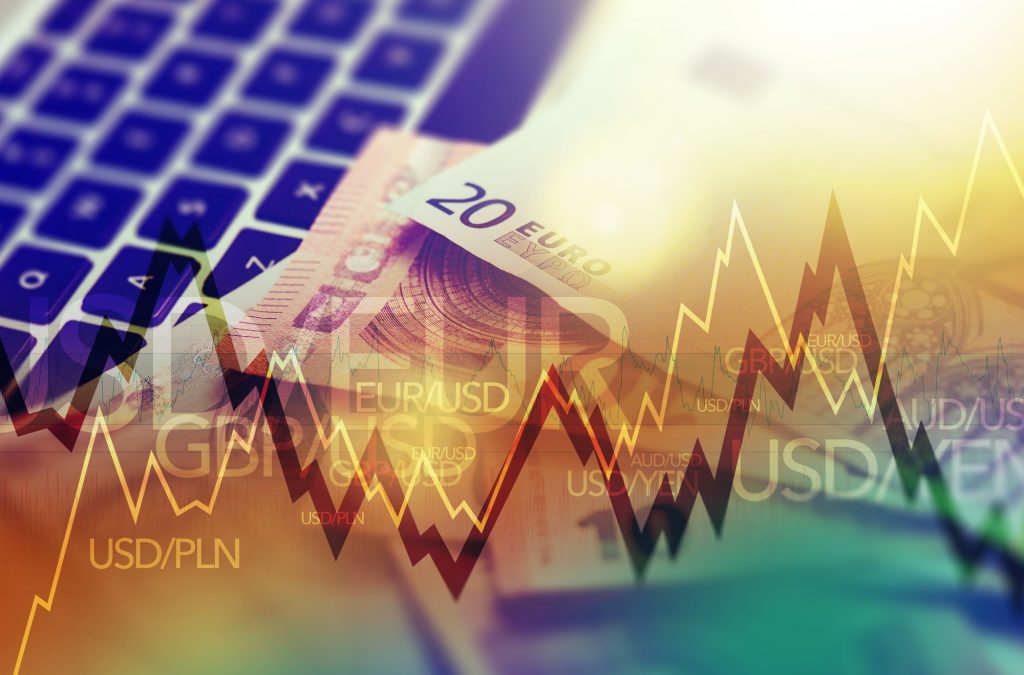Generally speaking, trading can be as simple or as complicated as you want to make it. Forex is a popular choice because it’s open 24 hours, it’s very liquid, and there is a lot of help online around getting started.
Complex market forces are at play, but it’s up to each investor to decide how much attention they want to pay to each. For example, some investors may trade based on hourly patterns in volume, whilst this may merely be noise for a trader who informs their trades from macroeconomic analysis.
This article will take a look at 5 tips that every forex trader can be reminded of, whether they’re an intermediate or an absolute beginner.
Table of Contents
Understanding the Fundamentals of Forex Trading
Forex trading involves the simultaneous buying of one currency and selling of another. It is important to understand that currencies are traded in pairs, but overall values of currencies can be calculated by mass analysing different pairs.
There are two approaches to forex trading: fundamental analysis and technical analysis. Fundamental analysis requires an understanding of economic factors that influence currency values. For instance, a trader must be cognisant of interest rates, inflation, and political stability, which can affect the strength of a currency. Technical analysis, however, is using techniques like charting and finding patterns in historical trading data.
One way to acquaint yourself with the foundational aspects of forex trading is to utilise educational resources that elucidate the intricacies of the market. Forex trading with Contract for Differences (CFDs) is also a possible trading avenue. Trading CFDs allows one to speculate on price movements without owning the underlying assets. However, it is crucial to recognise that CFDs are leveraged products, meaning one trades with borrowed capital. This can amplify profits but also amplify losses.
Understand the Mechanics of Margin
Forex trading on margin is akin to a double-edged sword. It offers the opportunity to open larger positions than one’s initial capital would allow, potentially leading to significant profits. However, it is essential to understand the risks involved. Leveraged trading can result in losses that exceed one’s initial investment, making it a high-stakes undertaking.
Before diving into positions amplified by borrowed capital, ensure that you have a robust risk management strategy in place. This involves setting clear limits on how much capital you are willing to risk and employing stop-loss orders to protect your investment from significant market swings.
Margin trading also opens the door to short selling, which is taking a selling position, meaning that the trader will profit from a decline in value. However, this bears its own risks too, as the potential loss is vast.
Develop a Disciplined Trading Plan
A disciplined approach to trading cannot be overstated. Your trading plan should encompass your investment goals, risk tolerance, and strategies for entry and exit points. It should also include how to handle various market conditions and how to adjust your plan as necessary.
Adhering to a trading plan helps in maintaining focus and warding off impulsive decisions driven by emotions. Our hormones and emotions dictate so much of what we do from moment to moment, and it’s important to protect your strategy from this.
This plan becomes the blueprint for all trading activities and should be reviewed and adjusted periodically to align with evolving market dynamics and personal financial goals.
Don’t Neglect Economic Indicators
Economic indicators are the compass by which savvy forex traders navigate the market. These data points, such as employment figures or consumer spending, signal the economic health of a nation and drive currency fluctuations.
Astute traders keep a keen eye on these indicators, using economic calendars to anticipate market movements and align their strategies accordingly. It’s not just the data itself but the market’s reaction to these announcements that can sway currency pairs – markets are always forward-looking and very quickly price in new information.
You may be a technical trader, but adding more signals to your strategy can only make your decisions more informed.
Continuously Educate Yourself
The forex market is ever-changing, and continuous education is paramount. Keeping up to date with the latest news, but also the latest strategies is important. For example, AI is having a growing presence in market trading, and it’s important to stay on top of how that impacts your approach.
Additionally, utilising demo accounts can be an effective way to practice strategies without financial risk. Many platforms offer these practice environments, and they serve as an excellent ground for experimentation and learning.
Final Word
In conclusion, forex trading offers diverse opportunities but is not without its risks, especially when trading with CFDs and on margin. A successful trader is one who is well-educated, understands the mechanics and risks of the market, maintains discipline in their trading plan, and commits to lifelong learning.
Ultimately, it’s important to not get too complex in your approach when first starting out, but to also to not totally neglect either technical or fundamental aspects.

Review 5 tips for forex traders. Cancel reply